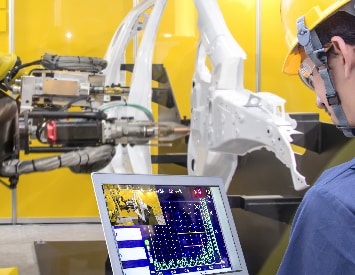This paper presents an intelligent game based decision-making algorithm (IGD) for a fleet of mobile robots to maximize the probability of detection in a limited area.
The agents have the minimum communication or even no communication result from a jamming attack by a given hostile. Thus, we proved that the proposed diagonal initial formation results in optimal barrier coverage.
Based on our decentralized cooperative non-cooperative game based algorithm, each robot can individually make the best decision to choose the shortest path with minimum local information.
Therefore, each agent consumes minimum energy result from using less memory in addition to maximizing the probability of detection, which leads to achieving maximum payoff individually, and in the interest of the group.


